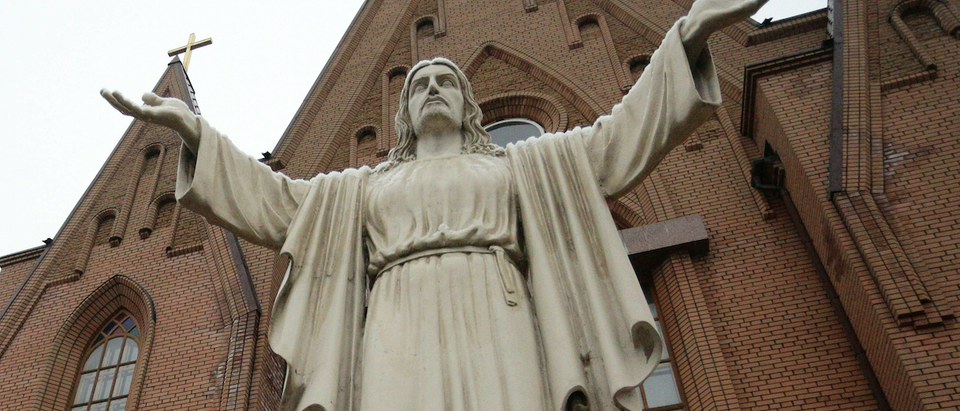A Christian church in Iowa is suing the state’s civil rights commission, claiming the state is trying to censor the church’s teachings on sexuality and force the church to allow men who identify as women to use the women’s restrooms.
At issue is the commission’s interpretation of the 2007 Iowa Civil Rights Act, which made it illegal to discriminate against a person on the basis of their self-identified sexual orientation or gender identity. The church is also challenging an almost identical provision in the Des Moines City Code.
The Daily Caller obtained a copy of the complaint, which states, in part, “The Commission’s interpretation grossly misunderstands the religious purposes and beliefs of Plaintiff Fort Des Moines Church of Christ.”
“The Act and City Code prohibit the Church from issuing statements that might cause individuals to believe that they are unwelcome because of their perceived gender identity,” the complaint later states. “The language of the Act and the City Code are broad enough to include within that prohibition sermons, theological expositions, educational speeches, newsletters or church worship bulletin text, or other statements from the Church and its leaders.”
“The Church’s minister desires to preach sermons addressing God’s design for human sexuality and the Church’s beliefs about ‘gender identity,’ but reasonably fears that if it were to do so it would violate the Act’s and the City Code’s speech ban. The Act’s and the City Code’s prohibitions would also apply to a church bulletin that included an explanation that the women’s restrooms are reserved for biological females, while the men’s restrooms are reserved for biological males,” the complaint continues.
“The Act’s and the Code’s prohibitions thus cause Fort Des Moines to self-censor and chill its speech, while permitting other churches and entities to freely express beliefs regarding sex that are consistent with the Act and City Code.”
The Alliance Defending Freedom, which is representing Fort Des Moines Church of Christ in the lawsuit, put out a statement saying: “The commission is interpreting a state law to ban churches from expressing their views on human sexuality if they would ‘directly or indirectly’ make ‘persons of any particular…gender identity’ feel ‘unwelcome’ in conjunction with church services, events, and other religious activities.”
“The speech ban could be used to gag churches from making any public comments—including from the pulpit—that could be viewed as unwelcome to persons who do not identify with their biological sex,” the statement continued. “This is because the commission says the law applies to churches during any activity that the commission deems to not have a ‘bona fide religious purpose.’ Examples the commission gave are ‘a child care facility operated at a church or a church service open to the public,’ which encompasses most events that churches hold.”
The commission did not immediately return a request for comment.
“Churches should be free to teach their religious beliefs and operate their houses of worship according to their faith without being threatened by the government. That is a foundational First Amendment principle,” ADF legal counsel Christina Holcomb said.
“Churches have always been protected from government intrusion, and they still are. They have a firmly established freedom to teach their beliefs and set internal policies that reflect their biblical teachings about marriage and human sexuality. One can hardly imagine a more obvious unconstitutional invasion of the state into the internal affairs of the church.”
A publication by the commission — titled “A public accommodations provider’s guide to Iowa law” — states that “Where qualifications are not related to a bona fide religious purpose, churches are still subject to the law’s provisions. (e.g. a child care facility operated at a church or a church service open to the public).”
The publication states that the law requires “that individuals are permitted to access those facilities in accordance with their gender identity, rather than their assigned sex at birth, without being harassed or questioned.”
The publication states, “Directly or indirectly advertising or publicizing that the patronage of persons of any particular sexual orientation or gender identity is unwelcome, objectionable, not acceptable, or not solicited” qualifies as “illegal harassment under state law.”
ADF is filing the lawsuit as a “pre-enforcement challenge,” which allows citizens to challenge a law before the government enforces it.
The church’s website describes it as “a non-denominational congregation that is simply trying to be faithful to God’s Word and call on our lives.”
Follow Peter Hasson on Twitter @PeterJHasson


